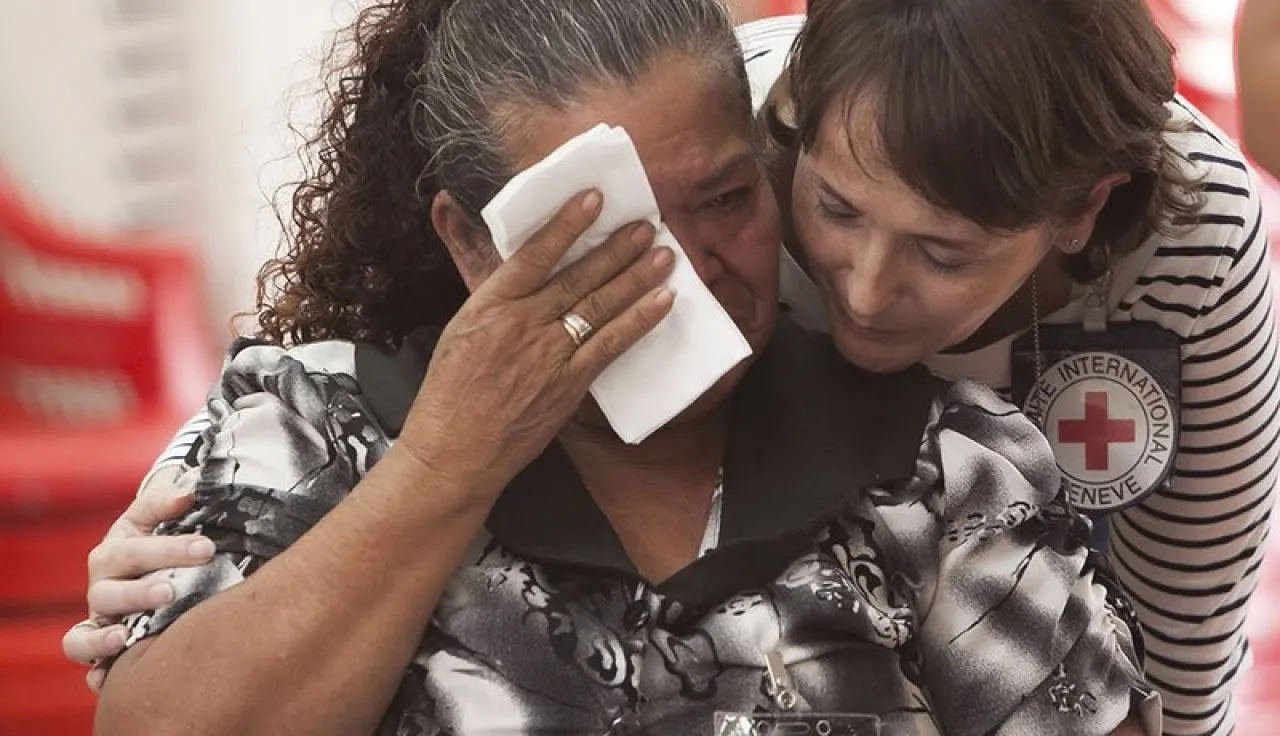Thank you to the Ambassador of Mexico for organising this meeting and thank you for the opportunity to join all of you today.
Just yesterday the Security Council met to discuss Syria which has now entered its 11th year of conflict. The meeting reminded me of the time when a young man named Sami described the war in Aleppo to the ICRC by saying, "I saw my city die. I saw myself break".
For most of their lives, some 5 million children in Syria have lived in conflict – fearful and longing for a better future. For adults too, the psychological impact of the conflict in all its many dimensions simply never goes away. And then COVID-19 added another layer of vulnerability and stress.
Syria by no means is distinct. The scars of armed conflict are found in any place where armed conflict and violence occur. Today we see these wounds deepening in Ukraine.
In situations of urban warfare especially, the physical scars of fighting – the destruction and bombed-out buildings - are plain to see. Much less obvious, but equally destructive, are the invisible wounds of war. Psychological trauma can stem from exposure to risks of injury, disability, and death, sexual violence, enforced disappearances, lost livelihood, broken dreams are deep wounds that can impact the individual as well as whole communities' mental health and wellbeing.
Simply put, mental health is central to overall health. That is why mental health and psychosocial support must be central to public health.
To achieve this goal, the ICRC recommends three main areas for action.
- First, invest in providing the full spectrum of mental health and psychosocial support services. This ranges from basic psychosocial support such as psychological first aid, psychoeducation, awareness-raising, community-based activities or other activities to specialized mental health such as counseling, group therapy, or psychiatric or psychological assessments and treatments.
- Secondly, ensure people have access to these mental health and psychosocial support services. In places of armed conflict, people often cannot access these services due to conflict, stigma, legal status, cost, or other reasons. Additionally, mental health and psychosocial support professionals are still few and far between in conflict settings. IHL provides that persons in need of mental health services receive the medical care and attention required by their condition, and protects persons engaged in delivering mental health and psychosocial support services.
- Finally, integrate mental health and psychosocial support services into broader Health Systems Strengthening strategies, to help bring about longer-term improvements to people's health and access to healthcare.
This means not only that a health system resources enough mental health and psychosocial support professionals, but also that health workers throughout the system adopt a patient-centred approach that includes mental health and psychosocial support as part of overall healthcare. All healthcare workers should have a basic level of mental health and psychosocial support awareness that they incorporate into their 'bedside manner,' in addition to their technical disciplines. This allows them to identify needs and refer to mental health and psychosocial support professionals.
The Red Cross and Red Crescent Movement, together with states, adopted a resolution and Mental Health and Psychosocial Support Action Plan at its 2019 International Conference. The ICRC has 279 mental health and psychosocial support programs around the world, working closely with our Movement partners. Last year alone, these programs reached over 700 000 people with a range of needs – including families of the missing; hospital patients suffering weapon wounds; frontline healthcare workers; and people in detention.
These programs show that people are resilient, even in crisis. But while people are resilient, they sometimes need help to strengthen resilience. Mental health and psychosocial support respects people's agency and strengthens their resilience in the face of adversity. It helps people resume functional lives by dealing with uncertainty and hardship.
And it is not only the individual who benefits from these services – their families and entire communities benefit too.
Mental health saves lives and protects dignity. It is essential to integrate mental health in overall health in the midst of conflict as well as in the aftermath when communities are attempting to move past the traumas of war.
Sami reminds us that there is no health without mental health. As he says: "I just want to be alright. It's hard to be 'okay' when you've seen so much". Our mental health is an integral part of our physical health, especially when the world around us is falling apart.
Thank you.




